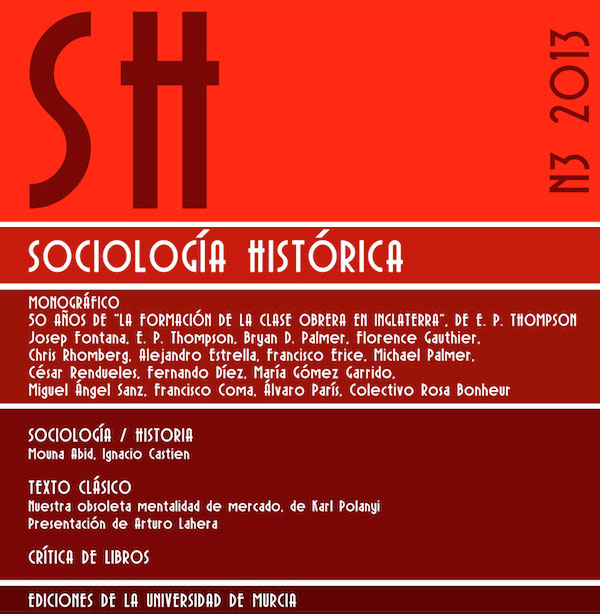Crisis and moral economy in Roubaix
Abstract
The concept of « moral economy », developed by Thompson, Scott and others, appears to be very helpful when focusing on « social answers to the crisis ». Based on an ongoing collective ethnographic investigation in Roubaix, a former textile-industry city in the North of France, this article examines the articulation of this sociological concept, and the current socio-economical context in this type of de-industrialized, relegated areas. These lower class territories determine lower classes' everyday life, but lower classes reciprocally contribute in shaping these territories. Lower classes have to build strategies to survive, in a daily fight for material and symbolic re-qualification. Moral economies, built in the context of neo-liberal political economy, despite it and/or against it, have become the field of subjective composition and re-composition of lower classes.Downloads
-
Abstract557
-
PDF (Español (España))251
Las obras que se publican en esta revista están sujetas a los siguientes términos:
1. El Servicio de Publicaciones de la Universidad de Murcia (la editorial) conserva los derechos patrimoniales (copyright) de las obras publicadas, y favorece y permite la reutilización de las mismas bajo la licencia de uso indicada en el punto 2.
2. Las obras se publican en la edición electrónica de la revista bajo una licencia Creative Commons Reconocimiento-NoComercial-SinObraDerivada 4.0 España (texto legal). Se pueden copiar, usar, difundir, transmitir y exponer públicamente, siempre que: i) se cite la autoría y la fuente original de su publicación (revista, editorial y URL de la obra); ii) no se usen para fines comerciales; iii) se mencione la existencia y especificaciones de esta licencia de uso.
3. Condiciones de auto-archivo. Se permite y se anima a los autores a difundir electrónicamente las versiones pre-print (versión antes de ser evaluada) y/o post-print (versión evaluada y aceptada para su publicación) de sus obras antes de su publicación, ya que favorece su circulación y difusión más temprana y con ello un posible aumento en su citación y alcance entre la comunidad académica. Color RoMEO: verde.










